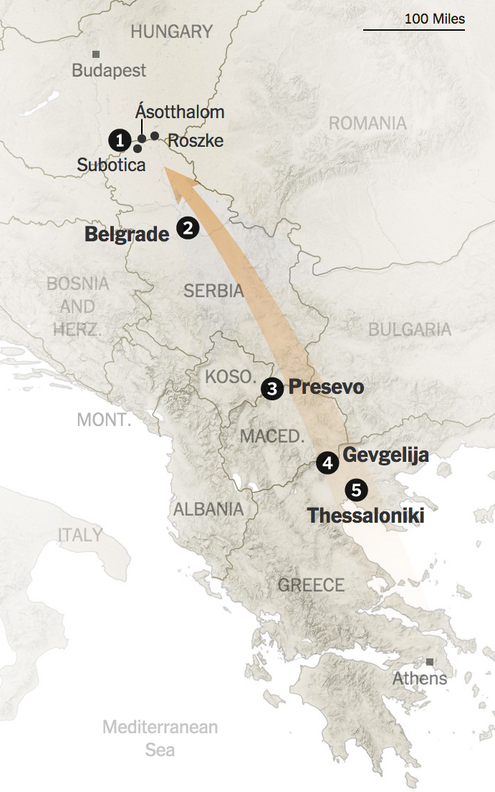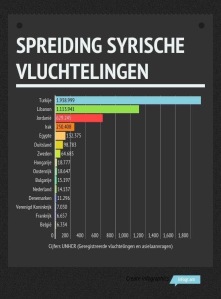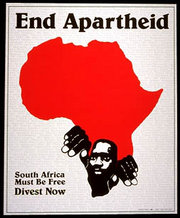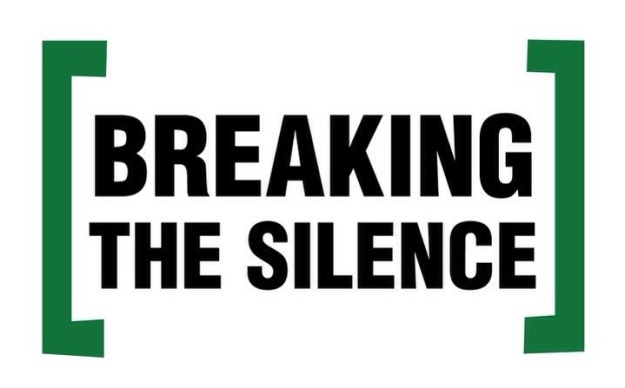Tuesday the 30th of June a public debate took place in Brussels, on the topic of the Arab Spring / Revolution and visions on the future of Arab countries. The panel members were Mahmoud Jibril, former Libyan prime minister of the transition government, and now president of the national forces alliance; Awn Khasawneh, former Jordanian prime minister; Naguib Sawiris, Egyptian businessman and leader of the Free Egyptians Party; Ahmad Hariri, Lebanese president of the Future Movement; Fawaz Tello, prominent Syrian opposition member against the Syrian regime; Guy Vehofstadt, former Belgian prime minister and president of the alliance of liberals and democrats for Europe; and Johannes Cornelis Van Baalen, politician in the Netherlands and part of the ALDE. Koert Debeuf (political analyst on the Arab world and former representative of ALDE to the Arab world) introduced the speakers, and Isabelle Durant was the mediator.
Yassine Brahim, Tunisian minister and leader of Afek Tounes was excused from his foreseen participation in the debate, and Guy Verhofstadt arrived only in the second half due to traffic jam or obligations at the EU level (both explanations were provided).
The event took the form of Durant introducing topics and inviting panel members to share their vision, and during the debate the public posted life questions on the tweet wall (#askarableaders). Some of those question then posed by Durant. Apart from that, four times in the total of two hours of debating, the public was allowed to ask direct questions via a microphone.
http://www.spinelligroup.eu/tweets-raw

The format thus was one of structured participation, which worked well – thanks also to the skills of the mediator (who firmly silenced a shouting man in the public with the words “you can disagree of course sir, but keep quite, shhhh”) and thanks to the friendly (somewhat mellow?) atmosphere of the debate itself.
Debeuf opened the evening with his (I refer to his lecture at Ghent University earlier this academic year) comparison of the Arab revolution with the French Revolution. Stating that the similarity lays in the fact that in both revolutions social changes happened on the ground, he concluded his intro with the famous Churchill quote about beginnings and endings.

In what follows I display some of the more remarkable quotes of the panel members, in the hope to transmit those aspects of the evening that make it into the long term memory.
Talking on the nature of the Arab Revolution (“spring is a season and we know it is due to come again and again”) Khasawneh stressed the importance of not focusing on single causes for what is happening, but to “take into account that the Islamic World has been hurt and wounded and humiliated since 1918” and “that material modernization cannot deal with this wound in the human soul.” He concluded with making clear that he is not a supporter of interference from the international community in what is happening now.

Jibril centered his thoughts mainly around the irreversible alliance between technology and capital which effects in money making more money (instead of food).

Tello shortly talked about the new Syrian generation and Daesh (specific questions Durant asked him), but then took the time to speak on a point of importance to him, namely “that the whole world should ask itself a question whether it applied the right approach to what was happening in the Arab World”. He exemplified his rhetorical question with the current Syrian refugee crisis and even compared Syria to Christ on the cross, paying the price for the past and the future all at once. In his expose one almost could feel the bitterness of him residing in prison for 8 years, just for opposing the regime.

Hariri posited that any solution will only come through dialogue and that Lebanon can learn from European history (referring to re-organization after World War II).

Then a man took the word, doubtfully introduced as “Van Baalen” or a name that resembled this (his name was neither in the announcement mail). From what he said one could make up that he was representing the EU or the UN, but it was not clear which one. He made general remarks on the fact that “we” are neighbors and that what happens in the Arab region also influences “us” (this made me think he was from the EU).
His next topic was that some countries are doing well to reasonably well, like Egypt, Jordan and Morocco, and that “we” should work with these states. About countries in deeper trouble, like Syria and Libya, the man said that “we” and Putin (somewhat shouting the name) did not do enough. Partly out of annoyance of not knowing who exactly was speaking, his vision made a slightly populist and hollow impression on me – as if he was speaking in slogans or newspaper titles in order to stay very general and at the same time to be liked by the public. And with what he continued to say he did not change this perception at all.
About refugees he said that “we” can provide money, infrastructure and doctors in the region, that “we” cannot provide the solution but that “we” can work closely together. And then his concluding remark closed the door of intellectual sympathy completely, when he out of the blue stated that “we should work with the moderate muslims”. Till this moment every panel member, when involving aspects of religion into ones speech, dealth with in an adult manner – framing in time and context or giving way to personal beliefs because of adhering to a certain religion.
Was I happy that I found out afterwards, that the “us” and “we” he was referring to, did not represent me. Van Baalen being a politician from the Netherlands and part of the Alliance for Liberals and Democrats in the EU, only geographically represents me (as being part of the EU), but his liberalist conviction excludes me from his fans both intellectually and ideologically. In hindsight then also his statements (the contradiction between “we” and “them”, the unwillingness to work on the refugee crisis by working out a viable strategy in the EU itself, the paternalistic style of shortly and general mentioning the flaws in EU practice and then spending a lot more time explaining how “we” can help the poor countries in crisis, and the innate fear of any kind of religion) made sense – knowing where he comes from.
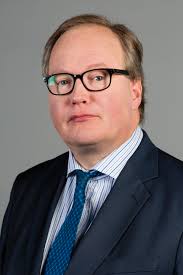
Sawiris started with saying that the Arab Spring changed the dogma that you cannot get rid of a leader. Now every leader knows what could happen to him if the people are not happy with his way of governing. Then he went on – possibly instigated by the talk of Van Baalen earlier – stating that the West made the mess in Libya and Iraq so that they have to clean it up now. “You cannot say that since interfering the first time was a mistake, you now do not interfere at all when it comes to cleaning it up.”
The first question from the public was about the role of women. Jibril, Tello and Khasawneh quickly admitted that women play a very important role and that they suffer a lot from the chaos in the Arab World. Hariri came with a somewhat unexpected plea for civil marriage, saying that only with this institution women’s equality will be created from within the family context. Unexpected as this turn in argumentation was, it might not surprise us that it comes from a representative of Lebanon, where a tradition exists of each religious authority administering civil services to its own religious group.
Another public question was “pourquoi parler du futur du monde arabe sans parler d’histoire? Pourquoi pas parler d’Israel, qui a causé des problèmes majeures?” The public reacted by applauding this.
Then a Lebanese citizen took the word and asked about the elections in Lebanon that were supposed to take place two years ago, adding that in his opinion the whole Arab world puts everything on hold for security concern: democracy, the rule of law, an independent judiciary, human rights and so on.
As the debate went on, every panel member included a statement that Israel was a problem and that it should be addressed. Only Jibril talked about it in little more detail, explaining that a new strategic balance of power has been formed in the region. The United States shifted their attention from Israel into Asia since their two objectives are met (security if Israel and access to oil), and the power in the region now shifted to Israel.
The rest of the members just generally made a statement on the Israel issue as if to make a statement of loyalty.
When asked about the rule of law, it was Khasawneh who put things into some perspective when saying that “it is entirely possible to have rule of law without civil society” and that “rule of law is not the objective, it is a means to obtain the objective.” After that he reiterated his saddening remark that the Middle East since 1919 had knew the loss and death of tradition.
The questions from within the public that followed, were of the kind that might have brought some sparkle into the calm and steady debate (and it was in fact when reacting to these that a man in the public felt the need to shout out loudly his disagreement). There was a question about the roles of the EU and Saoudi Arabia feeding extremism; one direct question being “Why are Turkey, Saoudi Arabia and Qatar helping Daesh?“; and another one about new frames and tools for the future, regional cooperation, radicalization and the fight against terrorism.
Tello took off with stating that it is not true that Turkey, Saoudi Arabia and Qatar are supporting Daesh, and that this is just plain stereotyping. He went on saying that Daesh is part of the failure of the international community in Iraq and Syria, as well as a reaction on the history of discrimination between Sunni and Shia Muslims. He continued stating that the Iranian project in the area must be treated as roots of the problem.
This gave birth to some shouting in the public, one man needed to be hushed down by Durant.
Directly engaging with what Tello said (finally some dynamic in this whole evening), Sawiris did not agree. He stated that Saoudi Arabia did in fact finance all extremist groups and that one of them became Daesh. He went on sharply with saying that that Turkey – by watching people being slaughtered – does interfere, and that Yezidis and Kurds being murdered, is playing into the cards of this state.
Jibril led the debate back to the topic of the Arabs Spring by not engaging in the Daesh theme and instead posing that the Arab Spring was not the result of some conspiracy theory, but that it was an Arab made event. He says the resolutions of the people who actually started the Revolution are being stolen in front of their eyes, and he hopes the people will claim the revolution back.
Verhofstadt then built upon what Jibril was referring to, and said that we have to remember that Bouazizi’s body was covered in the red flag of Tunisia, and not in the green flag of Islam. He spurred the public not to forget what the Arab Spring is about: young, independent, angry people fighting to free their country. For the EU he mentioned three agenda points:
1) to be involved in Arab policy
2) to develop a genuine neighborhood policy and a plan with tools and funds
3) to take stock of what we did not do in the past
He added some playful self-critique saying that “we in the West are incredible: when people ask us not to interfere – like in Iran – we interfere; when people ask us to interfere – like in Syria and Libya – we do not interfere.” And he concluded his speech with the advice to support democrats and liberals.

On the concluding question about visions on building new leadership in the countries, Hariri stressed that election is the main way to new leadership. He also added that a war on modern Islam is going on and that Daesh people are not part of the religion. Jibril centered his answer around his opinion that Libya and North Africa will be very crucial in realizing peace in the Near East and that investing in Libya is just an investment in your own national security: “You intervene now, or everybody is gonna pay a heavy price.” Sawiris added that the youth needs to be empowered. Khasawneh said that Jordan has been spared of the worst effects of the Arab Spring and also that he thinks changes are taking place more on paper than in reality. In order to prevent the outbreak of a new Arab Spring he says the youth must be acknowledged in the important role it has to play, and that the means therefore is changing the election law.
Tello concluded the evening by saying that Syria used to have an unstable democracy, what was replaced by a stable dictatorship thanks to the help of the West and the United States. He is of the opinion that the EU should be a real partner, should fight with the Syrian army against Daesh and then also afterward can sit at the table to discuss the installment of a new leadership.
All in all the debate fulfilled my expectations in that it was rather diplomatic, without much though position taking going on, or dynamic reactions between the speakers – after all the speakers are / were holders of governmental posts. On the other hand some of the remarks made will surely serve as an inspiration to further engage in critically analyzing news that reaches us about Daesh, the role of Turkey, the role of the EU, the roots of the Arab Spring and the different viable visions on the future for Libya, Jordan, Egypt, Lebanon and Syria.
On a more practical note this event was a confirmation on how reality is shaped by our knowledge: both Van Baalen and Verhofstadt represent the same political ideology. It is only the fact that one of them was unknown to me, and I was not sure whether his discours did fit in any of my prepared grids of expected political opinions, that his lecture did undergo another perception than that of his colleague Verhofstadt.

